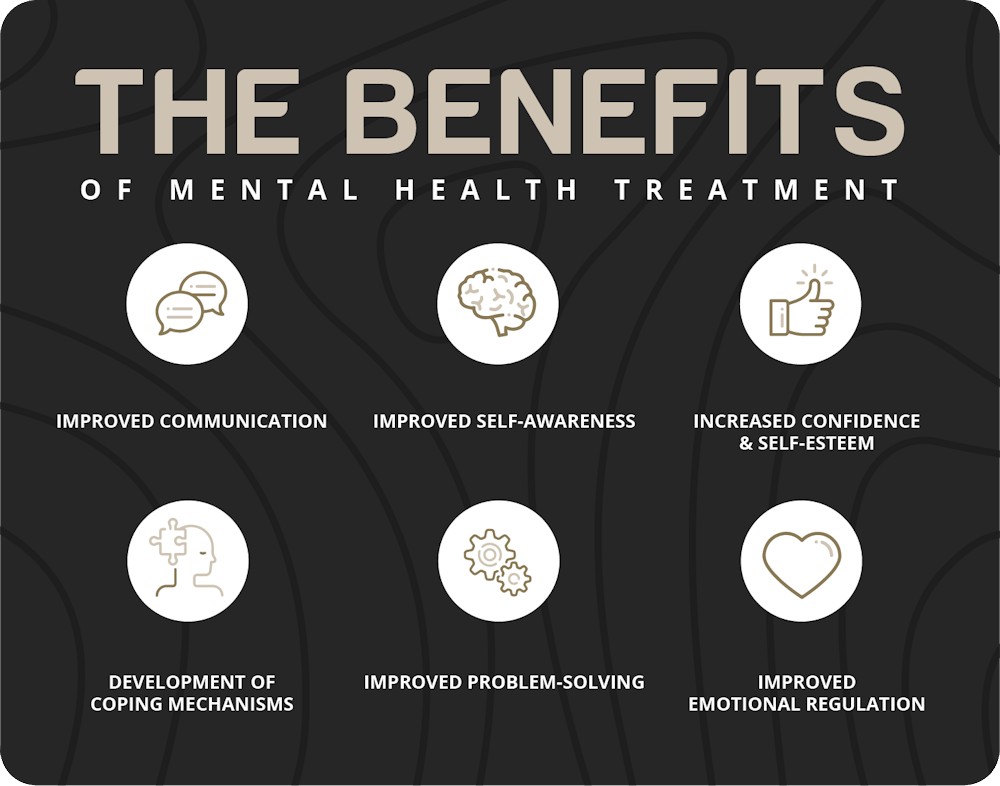Little Known Questions About Mental Health Counseling.
Little Known Questions About Mental Health Counseling.
Blog Article
Some Of Mental Health Counseling
Table of ContentsThe Single Strategy To Use For Mental Health CounselingFascination About Mental Health CounselingThe Ultimate Guide To Mental Health CounselingMental Health Counseling for Beginners8 Simple Techniques For Mental Health Counseling
With therapy, you can gain understanding into your very own patterns of habits and communication, which can bring about more meeting and satisfying connections with good friends, family, and charming partners. What we think, we show up. If you're taken in with negative emotions and adverse thoughts that are disrupting your life, treatment can aid.Like our ideas, occasionally our habits become destructive. They can keep us from living a favorable and healthy and balanced way of living. Perhaps you fight with addiction, or you have a tendency to self-sabotage, or there are various other adverse ways you behave. Mental Health Counseling. Treatment can assist you modify those actions that are having an adverse influence on your world and connections.

The relevance of therapy goes beyond your mental health and wellness. Getting therapy to address specific elements of your life can aid you be a lot more efficient in various other locations, including work. Some research study has actually also revealed that there's a straight connection between seeking mental health help and a reduction in missed job.

Rumored Buzz on Mental Health Counseling
You can see a therapist when points are going actually well in your life, or when you will go via a large life shift." Talkspace specialist Kate Rosenblatt, MA, LPC, LMHC. There are even more benefits of therapy than just the ones we have actually gone over. Treatment can instruct you just how to handle separation, manage pain, or build connections (charming or those with friend or family) in a healthy and balanced means.
For the purpose of the here and now research study, perceived advantages and obstacles to psychological health and wellness help-seeking are being discovered. Previous research discovered that perceived obstacles have a substantial effect on university student' health behavior selections (Von Ah, Ebert, Ngamvitroj, Park & Kang, 2003). Viewed benefits and obstacles to help-seeking were particularly picked as a result of their impact on decision-making and eventually activity (Glanz, Rimer, & Su, 2005).
The present study looks for to take a look at whether or not preconception serves as a barrier to therapy among college trainees. image source Among these were: (1) liking to deal with mental health and wellness issues themselves, (2) not having adequate time to get involved in therapy, (3) questions about whether mental wellness treatment is efficient in remediating troubles, (4) an idea that stress and anxiety is typical or the issue will get much better without therapy, (5) absence of cash, and (6) stress regarding what others would assume if they located out concerning therapy participation.
Staff in school mental health and wellness centers may be perceived as hostile, and long wait times for solutions might be "off-putting" for students. Variables facilitating extra positive attitudes are typically at the opposite post of those variables recognized as barriers.
The 30-Second Trick For Mental Health Counseling
One in 3 (34.6%) reported surviving school and one in four (23.3%) reported living with parents. Virtually half of pupils were included in campus companies and 1 in 10 reported remaining in a fraternity or sorority. Greater than one-third of trainees (38.1%) reported that they had a relative or good friend with a detected mental wellness condition.

Get This Report about Mental Health Counseling
Univariate F-tests recognized specific subscale items that considerably varied. Females were less most likely than men to view people that go to therapy as mentally weak, individuals that go to therapy as insane, to feel that people with psychological health and wellness problems should manage problems on their own, that people who most likely to counseling as unable to fix issues, that individuals that most likely to counseling are lazy, and to feel that individuals that go to counseling are different from typical people in a negative means.
Likewise, research study results disclosed that females were considerably less most likely than males to hold stigma-related mindsets. This follows previous study which also located that males hold higher levels of perceived stigma than women (Chandra & Minkovitz, 2006). Based upon research findings, it appears that men might be much less likely than females to look for treatment because of low perceived obstacles along with high stigma-related mindsets.
Examine This Report about Mental Health Counseling
In enhancement, college health and wellness experts may offer academic programs targeting men with details on the benefits of mental health and wellness therapy and the importance of seeking help when required., the existing study located no significant differences in the number of regarded obstacles to help-seeking actions based on sex.
Scientist hypothesize that this is primarily as a result of conventional social standards and gender duties that characterized men based on stamina and lack of emotional expression (Addis & Mahalik, Go Here 2003; Ang, Lim, Tan, & Yau, 2004; Mojtabai, 2007). In general, there have been mixed outcomes amongst the university student population concerning sex differences (Rosenthal & Wilson, 2008). This finding was unexpected and could highlight that those who had actually obtained therapy had a better concept of wait times and various other "access" obstacles that may make it hard to start therapy. Possibly, participants who have actually gotten therapy sight extra obstacles than individuals who have not received counseling because seeking counseling services again could involve worry of self-disclosing individual details to a brand-new counselor.
Report this page